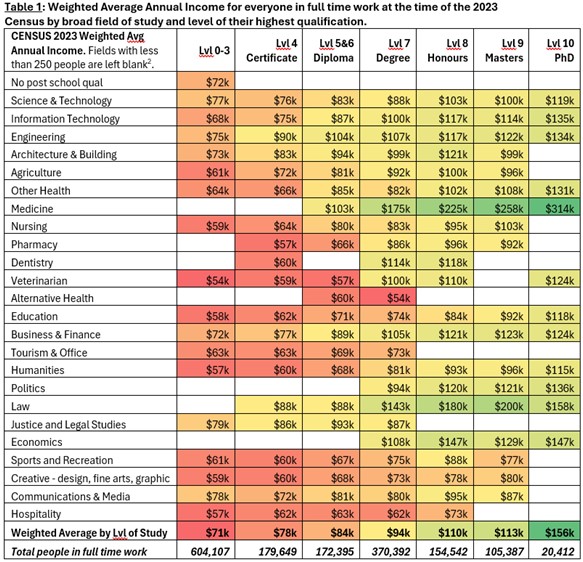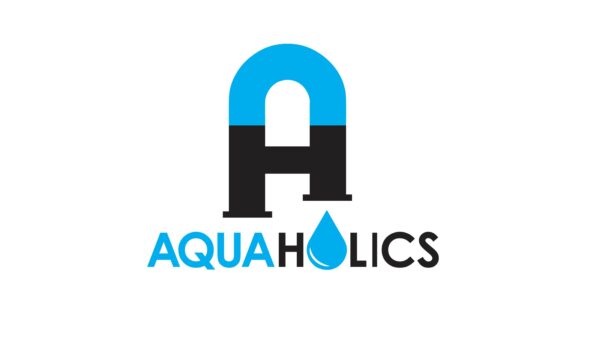Ever wondered if more study means more money? Whether it’s uni, a trade, or a diploma – is actually worth it for your pay packet here in New Zealand?
It’s a big decision, and wading through salary data can feel overwhelming.
Good news! We’ve looked at the official NZ Census data (from 2023 to 2013) – and this article by Universities New Zealand – to get some answers. Let’s break it down simply:
The Short Answer? Yes, Generally It Pays.
Looking at the latest 2023 figures, there’s a pretty clear trend: the higher your qualification, the higher your average annual income tends to be.
- No post-school qualification (Level 0-3): Weighted average income ~$71,000
- Level 7 Degree: Weighted average income ~$94,000
- Level 9 Masters: Weighted average income ~$113,000
- Level 10 PhD: Weighted average income ~$156,000
Where’s the Big Money?
No surprises here, some fields consistently show higher earning potential, especially with advanced degrees. Think Medicine (where PhDs averaged a whopping $314k in 2023!), Law (Masters averaged $200k), Dentistry, IT, and Engineering. If you’re in these fields, postgraduate study often unlocks significantly higher salaries.

“University of Waikato qualifications represent more than academic achievement; they prepare students to succeed in the real world.
Professor Alister Jones, Deputy Vice-Chancellor at the University of Waikato
“We place such a strong focus on work-integrated learning and by partnering with local businesses, we create meaningful opportunities for students to gain hands-on experience, build professional networks and develop the adaptability and work-readiness that employers are looking for. These real-world skills, combined with a strong academic foundation, set our students apart and give them an advantage as they enter the workforce. It’s a distinctive feature of our Tauranga campus, which is deeply embedded in the city’s business district and connected to the region, and is a powerful example of how education and industry can work together to shape future success,” says Alister Jones.
Check out the study options at the University of Waikato by clicking here.
What About Trades, Certificates & Diplomas?

University isn’t the only path, and vocational qualifications pack a punch too! These often fall into Level 4 (Certificates) and Levels 5-6 (Diplomas).
- Level 4 Certificate: Weighted average income ~$78,000 (2023)
- Level 5 & 6 Diploma: Weighted average income ~$84,000 (2023)
These qualifications clearly boost your earning potential well above the baseline for those with no post-school training. They provide essential skills for many hands-on and technical industries across Aotearoa. There is a huge need for capable technicians, where you can earn more with extra industry training and specialisations.
An excellent option in the Bay of Plenty is Toi Ohomai Institute of Technology which is dedicated to empowering journies towards success. From foundation-level to certificates, diplomas, degrees, and post-graduate courses, you have the perfect pathway to achieve your goals. They offer flexible study options to fit your lifestyle, including part-time, full-time, and online courses. Explore their subjects by clicking here.
Our smaller class sizes mean personalised attention, with one-on-one support to help you thrive both academically and personally.
Toi Ohomai Institute of Technology
Have Incomes Changed Over Time? (Looking Back: 2013 vs 2023)
Comparing the 2023 data to 2013 shows that average incomes have grown across all qualification levels over the decade.
For example:
- The average income for a Level 7 Degree holder jumped from ~$71k in 2013 to ~$94k in 2023.
- Even the baseline for no post-school qualification rose from ~$49k to ~$71k.
While fields like Medicine and Law saw massive leaps, the overall trend shows that the value proposition of gaining qualifications has generally strengthened over the last ten years.
The Takeaway for Busy Kiwis
Investing time and money in gaining qualifications – whether academic or vocational – generally leads to better earning potential in the long run here in New Zealand.
Of course, averages don’t tell the whole story. Your specific industry, experience, location, and role matter hugely. But this Census data gives a valuable snapshot: more skills and knowledge often translate to more dollars in your bank account. Food for thought as you plan your next career move!
















































